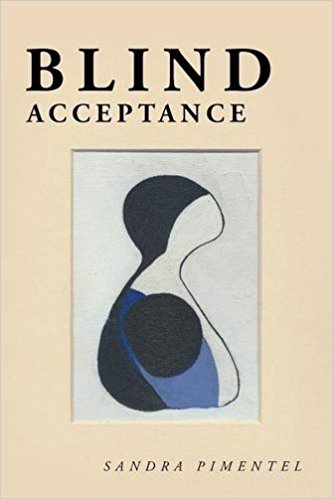
I’m not sure what I was expecting when I started to read Blind Acceptance, but what I do know is that the story blew me away. Written by Sandra Pimentel, the memoir takes readers on a journey through her childhood, the evolution of her marriage, her relationship with religion and how she navigates through the cultural complexities of the last half of the twentieth century.
Born into a family of Scottish and Italian immigrants, Sandra’s childhood was eclectic, colorful and enriched by both sides. As a child, she learned that not only is family everything, but family loyalty is everything. Her grandfather and father were extremely generous men, who often helped and took in strangers. Those qualities shaped her worldview and carried into her future. Her dedication to unconditional acceptance, generosity and trust in humankind are what drives Pimentel to confront racism, question religion and help those who are less fortunate. It was also a quality that sometimes got her into trouble.
After high school, Sandra went to nursing school, despite her father’s objection to the career choice. Apparently he objected because she would see naked bodies. (I think I laughed for ten minutes after reading this.) In nursing school, she befriended a “born-again Christian” and became “indoctrinated to the glory of Jesus Christ.” Sandra recognized that it was a “bizarre turn of events” for her but continued to fall deeper into that rabbit hole by taking up with Bob Marsh—an upstanding, born again member of the church who was headed to Harvard Law School. The relationship didn’t last too long because she was reconnected with her friend Paul Pimentel, who she had known from high school. Paul attended Harvard Law and lived in a dormitory close to Bob’s. Paul gave her the intervention that she needed to get rid of Bob. “This relationship is a bad idea. You can’t love a guy like him. You’ve been totally hooked by his good looks and money and by those nut cakes in Boston, the narrow-minded, religious bigots who think they sit on the right hand of the Father—and by the way, you’re whacked out too.” (Paul was my kind of guy.) Sandra didn’t end the relationship with Bob immediately, but she eventually did. As soon as she ended her relationship with Bob, Paul saw his chance.
Paul and Sandra eventually married in 1965 in front of 350 of their closest friends and family and thus begin their journey. Due to Paul’s Navy training, they moved around a lot, making friends wherever they went. After only being married for two weeks, they left Boston and headed to California. Sandra took a job as a nurse at a local hospital but quickly was introduced to the racial tension in the country when she came face-to-face with the Watts riots. The next few years of their marriage were happy, but trying times for Sandra. Paul had been deployed to Vietnam twice and they had started a family.
In 1967, Paul was discharged from the Navy and accepted a job in Albion, Michigan and once again, they were off to start another chapter of their lives. Albion was different from where Sandra grew up, and it was there she was confronted with racism again. She befriended an African-American woman named Barbara Gladney. “I began to think critically for the first time about racism and I came to realize that it had been cultivated in me,” Sandra writes. “I determined that I would never allow it to show its ugly face. No option; to deny its existence would have negated ever making it go away. So I decided that my every action would be put through a filter of equality, with hope that it could change me and change the world.” Sandra did just that.
Sandra and Paul joined community and church groups, and in collaboration with her friend, Barbara, they founded a dinner club called the Melting Pot, which would bring together the people of the community regardless of their race or culture. It was a huge success.
After six years of marriage, they had four children, had lived in five different apartments, owned two homes, started an inclusive dinner club and housed a young interracial couple. But it was when they took in two young black men—who were recovering drug addicts—that Sandra questions her blind acceptance.
This memoir took me on a roller coaster of emotions and revelations, but that’s what excellent stories are supposed to do, right? Blind Acceptance perfectly illustrates how a person’s life is influenced by their family and culture, but more intriguingly, how people from completely different walks of life can shape your worldview and set you on a completely different path. Sharing your weaknesses, flaws and fears with the world can be a very scary thing, but Pimentel’s candor is lovely. Sandra Pimentel’s Blind Acceptance is available now to purchase at major book retailers and online.
Twisted Talk: Are you a fan of memoirs? Have you read Blind Acceptance? Discuss below!








